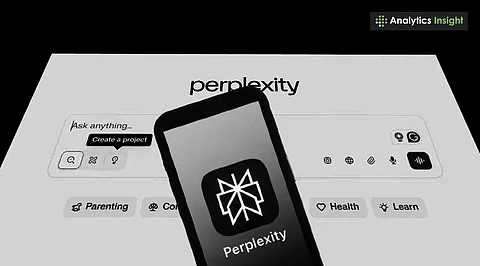

Perplexity AI is growing rapidly due to its authentic source citation, but it is still accused of different issues.
From plagiarism to BBC disputes, this year Perplaxity has loads of allegations and lawsuits to address.
The Yomiuri Shimbun lawsuit has once again ignited the controversies regarding the use of Generative AI.
Perplexity AI, the most rapidly progressing player in the generative Artificial Intelligence sector, has been cementing its position as one of the strongest alternatives to traditional search engines. This strong emergence of this AI tool has attracted investor attention, as well as users.
This success is commendable, but at the same time, this AI chatbot is surrounded by multiple ethical, legal, and reputational challenges, ranging from copyright disputes to web scraping and misinformation.
Let’s begin with the latest scandal that this AI chatbot has been dragged into. In August 2025, Japan’s largest newspaper, Yomiuri Shimbun, filed a landmark lawsuit against Perplexity AI for reproducing nearly 120,000 of its copyrighted articles without permission.
As per the lawsuit, in the stretch between February and June, this chatbot has accessed 119,467 articles on Yomiuri’s site. The newspaper authorities demanded 2.2 billion yen (approximately $14.7 million) for copyright violation, lost web traffic, and advertising revenue.
Cloudflare, the global web infrastructure giant, accused Perplexity of masking identity and accessing sites that banned its access. According to the reports, the company claimed that Perplexity’s bots masked their identity, altered user agents, and rotated IP addresses to bypass detection.
These accusations violate widely accepted internet crawling norms. Therefore, Cloudflare has removed Perplexity from its verified bot list and highlighted a broader concern regarding transparency in AI data harvesting mechanisms.
Also Read: Perplexity AI Accused of Bypassing Anti-Scraping Measures to Access Restricted Content
BBC and Perplexity dispute is one of the major issues of recent times. BBC has challenged Perplexity AI for unauthorized scraping and reproduction of its articles. The BBC authorities have threatened to sue the company if it continues to train the AI chatbot using their data.
Controversies of Perplexity AI have sparked debates over data usage, content accuracy, and ethical AI practices. They have also warned readers that these AI-generated outputs often contain serious inaccuracies.
The subsequent Perplexity AI controversy that has drawn attention in early 2025 is the lawsuit that Perplexity Solved Solutions filed against Perplexity AI. The former company filed for a trademark license in the US.
PSS claimed that similar branding could mislead customers and even dilute its established identity. However, this case goes beyond just naming rights and poses questions on brand trust and distinctiveness in a crowded Artificial Intelligence market.
Several Perplexity AI Controversies highlight concerns about transparency in algorithmic decision-making. One of the most serious allegations that Aravind Srinivas led company has been facing in recent times is plagiarism. Perplexity is well-known for its authentic source citation.
Still, renowned media houses, including Forbes, The New York Times, and Dow Jones, have claimed that some of the outputs that the AI chatbot provides are copied line-by-line from their published content without proper visibility or source attribution.
Broader AI Controversies continue to shape public trust in emerging technologies. Aside from all these, critics and journalists have found multiple cases where Perplexity has generated fabricated facts, fictitious quotes, and misleading information.
These inaccuracies not only increase the risk of spreading misinformation but also threaten the credibility of AI-generated search.
Also Read: Why is Perplexity Pro Smarter Than Other AI Tools?
Understanding the difference between pushing limits and crossing the line is essential. While the first one is necessary to strengthen the position in the competitive market, the next one places a red alert.
Perplexity AI’s 2025 journey up to this point reflects its double-edged nature. The Perplexity Japan Controversy drew attention to cultural sensitivity and localized content moderation issues.
On one hand, it has introduced new ways to access and synthesize information, and on the other, it is facing legal challenges for crossing ethical Artificial Intelligence boundaries. Its disputes with powerhouses like The Yomiuri Shimbun, BBC, and The New York Times reveal it’s not only corporate conflicts but more like who controls information in the digital age and how AI companies are held accountable.
However, the central question remains the same: whether AI companies can balance innovation with respect for intellectual property, accuracy, and trust, or whether they are just trying to dominate the market, thereby undermining all ethical values.
1. Did Perplexity AI use deceptive methods to scrape blocked website content?
Ans: Cloudflare alleges Perplexity AI disguised its bots to bypass site restrictions, using fake user agents and rotating IPs. Perplexity denies wrongdoing, claiming requests were user-driven and not unauthorized scraping.
2. Is Perplexity AI involved in copyright infringement lawsuits with major publishers?
Ans: Major publishers have accused Perplexity AI of unauthorized use of copyrighted content, sparking lawsuits over web scraping practices and questions about the legality and ethics of AI-driven aggregation platforms.
3. Does Perplexity AI ignore robots.txt and other industry standards for bot behavior?
Ans: Investigations found Perplexity’s crawlers allegedly ignored robots.txt files, disguising themselves to circumvent explicit restrictions, fueling wider debate over ethical standards for AI-powered web scraping.
4. What are the privacy and security risks associated with Perplexity AI's data collection?
Ans: Concerns center on how Perplexity AI collects, stores, and uses user queries and web-sourced information, with critics citing possible risks to privacy and data security from its extensive aggregation techniques.
5. How does Perplexity AI respond to controversial allegations and lawsuits?
Ans: Perplexity AI denies all wrongdoing, claims its activity is user-driven, disputes Cloudflare’s accusations, and emphasizes its compliance with acceptable web protocols, often arguing these controversies are misinterpretations
